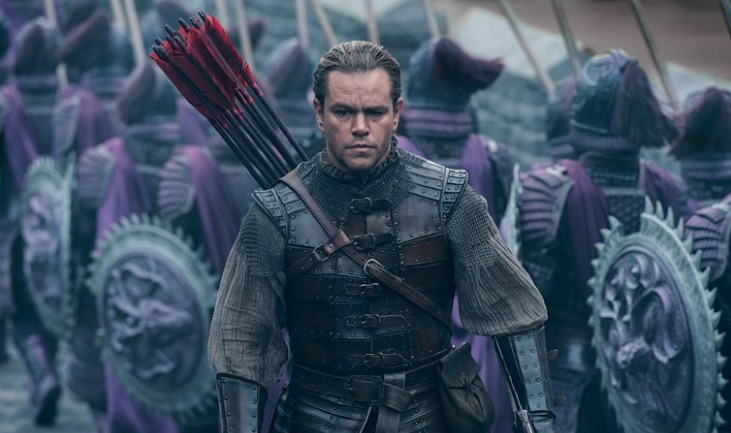
Matt Damon in "The Great Wall"
Government intervention in the motion picture industries cannot undo an industry-wide problem that affects a vast amount of productions. The scale of the diversity problem is evident in several recent industry studies conducted on the biggest Hollywood releases and TV shows.
Recent incentives announced in various countries from Canada to the UK have lifted hopes that diversity can be tackled early on in the development of feature films, but this new push alone cannot resolve the problem that is deeply rooted in the way that films are financed.
After “Gods of Egypt” was widely panned as a white-wash, Ridley Scott admitted that he was unable to get non-white actors in lead roles because of the limitations imposed by a tax rebate he relied on to get financing in place. However, the argument that tax rebates or incentives are blocking financiers from being able to make stories with diverse cast or crew members is becoming less of an acceptable excuse.
Audiences are increasingly wary and turned off by films which fall short on representing characters, cultures and religions accurately in their storylines. This means the casting process needs to be more rigorous for indie as well as mainstream features. From a financing perspective, it makes more sense now to look at working with talent from diverse backgrounds but this can’t be achieved by tax rebates, small government handouts or incentives alone.
Most productions are not financed by government subsidies and therefore producers have to take it upon themselves to uphold these new principles which many feel are now essential in making a film the right way. Co-productions are also making it more crucial for film producers to make sure that casting and story elements are inclusive, where research with audiences is also recommended. It was only just this summer that Hollywood production “The Great Wall” was slammed for including Matt Damon as a “white hero” in a motion picture that was firmly centred on Chinese history, requiring an Asian actor in the lead.
There has been some progress in the wider industry on the issue with talent offered opportunities to work on major productions but as actor David Oyelowo recently pointed out, action has to be taken, and simply talking is not enough. There’s a lot more that needs to be done.





















